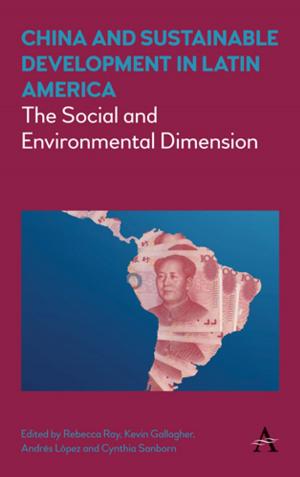| Author: | Wheeler Dixon | ISBN: | 9781783080267 |
| Publisher: | Anthem Press | Publication: | December 1, 2013 |
| Imprint: | Anthem Press | Language: | English |
| Author: | Wheeler Dixon |
| ISBN: | 9781783080267 |
| Publisher: | Anthem Press |
| Publication: | December 1, 2013 |
| Imprint: | Anthem Press |
| Language: | English |
More and more, just a few canonical classics, such as Michael Curtiz’s “Casablanca” (1942) or Victor Fleming’s “Gone With The Wind” (1939), are representing the entire output of an era to a new generation that knows little of the past, and is encouraged by popular media to live only in the eternal present. What will happen to the rest of the films that enchanted, informed and transported audiences in the 1930s, 1940s, and even as recently as the 1960s?
For the most part, these films will be forgotten, and their makers with them. Wheeler Winston Dixon argues that even obvious historical markers such as Alfred Hitchcock’s “Psycho” (1960) represent shockingly unknown territory for the majority of today’s younger viewers; and yet once exposed to these films, they are enthralled by them. In the 1980s and 1990s, the more adventurous video stores served a vital function as annals of classic cinema. Today, those stores are gone and the days of this kind of browsing are over.
This collection of essays aims to highlight some of the lesser-known films of the past – the titles that are being pushed aside and forgotten in today’s oversaturation of the present. The work is divided into four sections, rehabilitating the films and filmmakers who have created some of the most memorable phantom visions of the past century, but who, for whatever reason, have not successfully made the jump into the contemporary consciousness.
More and more, just a few canonical classics, such as Michael Curtiz’s “Casablanca” (1942) or Victor Fleming’s “Gone With The Wind” (1939), are representing the entire output of an era to a new generation that knows little of the past, and is encouraged by popular media to live only in the eternal present. What will happen to the rest of the films that enchanted, informed and transported audiences in the 1930s, 1940s, and even as recently as the 1960s?
For the most part, these films will be forgotten, and their makers with them. Wheeler Winston Dixon argues that even obvious historical markers such as Alfred Hitchcock’s “Psycho” (1960) represent shockingly unknown territory for the majority of today’s younger viewers; and yet once exposed to these films, they are enthralled by them. In the 1980s and 1990s, the more adventurous video stores served a vital function as annals of classic cinema. Today, those stores are gone and the days of this kind of browsing are over.
This collection of essays aims to highlight some of the lesser-known films of the past – the titles that are being pushed aside and forgotten in today’s oversaturation of the present. The work is divided into four sections, rehabilitating the films and filmmakers who have created some of the most memorable phantom visions of the past century, but who, for whatever reason, have not successfully made the jump into the contemporary consciousness.















